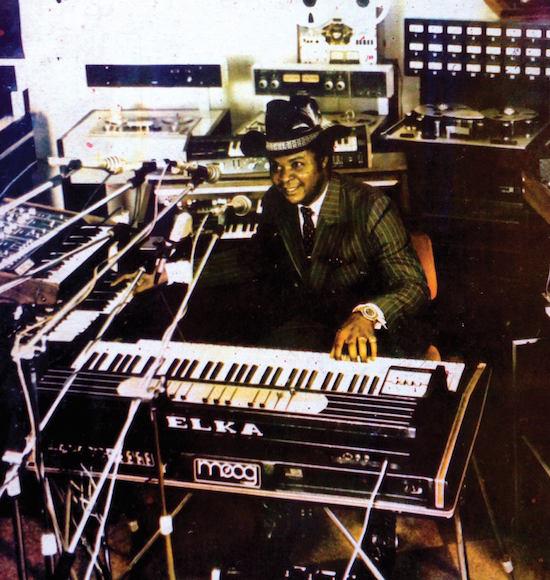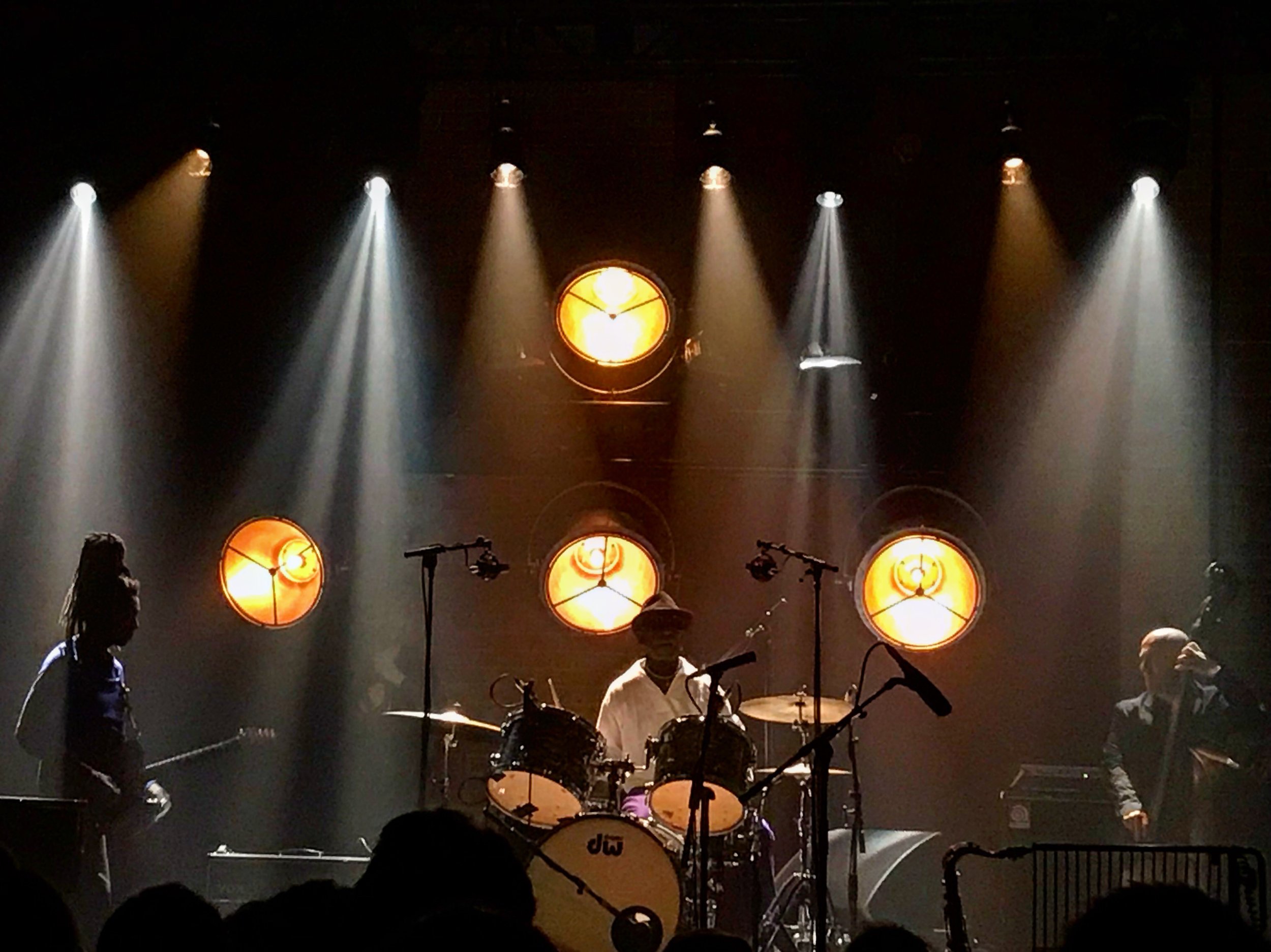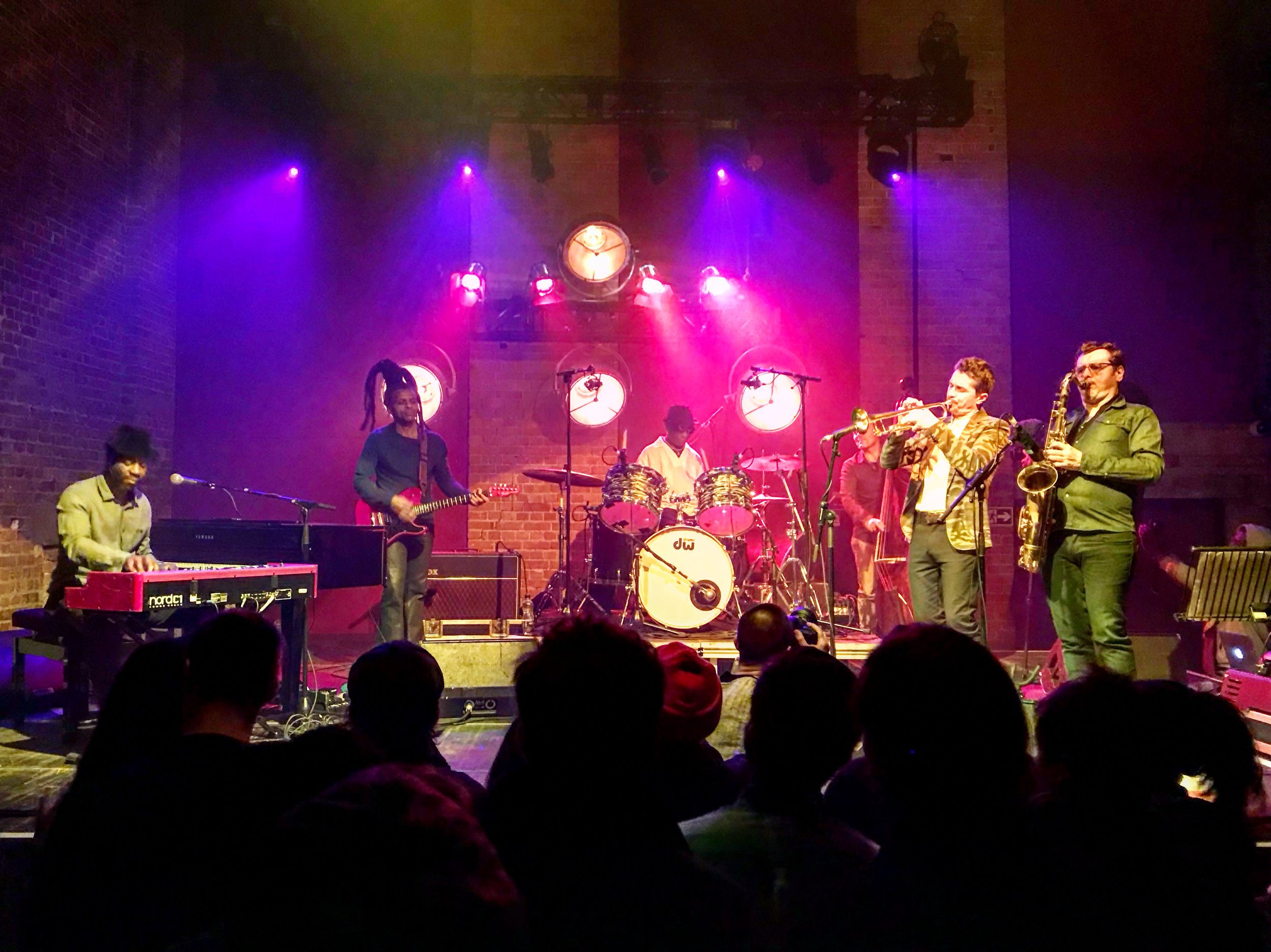19.03.18
Jazz Cafe (Camden)
Bukky Leo, a renowned saxophonist best known for having played for years in Nigeria, his home country with Afrobeat innovator Fela Kuti after being originally spotted by afrobeats rhythm master Tony Allen.
In 1982 Bukky came to London where he proceeded to make waves in the beginning of the acid jazz scene. In this era, Bukkys debut album hit no.1 in the rhythm and blue, dance and jazz charts. These days Bukky still tours with the likes of Tony Allen and funk and soul maestro Roy Ayers. As well as this, Bukky now tours around the top jazz venues with the Black Egypt band, an all star afrocentric band playing dedications to some of the greatest afro funk, soul and afrobeat, with such shows previously as Bukky Leo and the Black Egypt present Fela Kuti.
Now they have come together in this stunning line-up of maestro musicians, with multitudes of recordings behind their names. Starting with the legend himself: Bukky Leo on Lead Vocals/Tenor Saxophone, Yeukai Makoni and Maxyne Ryne on backing vocal, Maurice Brown on Guitars, Kishon Khan on Keyboards and the retro Onyeabor-esc Moog Fender Rhodes, Dennis Davies on Bass, Richard Olatunde Bake on Percussions Congas and backing vocals, and Saleem Raman on drums. The horn section: Toby Nowell on trumpet, Fred Schmid on baritone saxophone and finally Harry Brown on trumbone.
This time around the talented band are playing a tribute to the late Willam Onyeabor. (1947-2017), specifically they are naming the night: ‘The Legend of William Onyeabor’, obviously correlating to his innovative Nigerian synth based grooves, however I imagine they are referring somewhat also too the fact that the real William Onyeabor is an allusive mysterious man with legendary stories similar to that of Sixto Rodriguez, surrounding the music and fame of Onyeabor.
Up until super recently (perhaps even the changing marker may’ve been his death) if you wanted to buy one of Onyeabors famed nine self released albums between 1977 and 1985 on his personal label ‘Wilfilms’… You would struggle. Big time. The only available package of Onyeabors tunes is a 2013 compilation album released on Luaka Bop records called "Who is William Onyeabor", of which kick started an enigmatic comeback, all whilst existing in an unattainable oblivion. So much so is William Onyeabors life a mystery to all, that infact during the one gig ever organised for the guy… The audience was treated to a life size cut out of Onyeabor, only for the real human to never show! Stuff of legends.
The musicality part of William Onyeabors legendary status comes from his innovative use of the synthizers. Born in Enugu in Nigeria, locally Onyeabor is supposedly a well known businessman and devote self proclaimed born again Christian. On top of this, he is known by the town as repectfully “The Chief”. However in all of this, there is nothing to be said for the nine albums he produced, and near to no information on the man himself, other than that he was a man to be feared, with no-one wanting to cross the apparently, bad tempered Onyeabor. Famously Eric Welles-Nyström of Luaka Bop records was quoted to have said that in attempting to meet with Onyeabor to sign the pre-agreed contract allowing Luaka to release a complication of his songs was “one of the toughest ordeals I had ever endured in my life” and thus changed the pre-named “This is William Onyeabor” compilation to the more accurately titled “Who is William Onyeabor?”.
Onyeabors bodacious use of synthesisers was at the time unprecedented in Nigeria, and I’d take a guess in saying over also much of West Africa. Innovating an afro-techno, funk and disco genre with sometimes political lyrics, and sometimes lyrics straight from Onyeabors crazed and mysterious imagination. These synth infested tunes are catchy as hell, and amazingly good fun.
The evening as always at the jazz cafe was lit beautifully, with the seemingly small stage packed with musicians. They played the great works of William Onyeabor with immense skill. Each musician took their turning solo-ing, from beautiful jazzy solos on the sax, to the retro sounding synths on the keys by Kishon Kahn. The horn sections to the backing singers, everything fitted perfectly to William Onyeabors aesthetics. Bukky Leo reminded us of his ferociousness on the saxophone playing intense solos that had the audience gasping for the next notes. The disco drops played perfectly as half the audience danced 80’s disco style, really letting go and moving to the Nigerian beats. The other half of the demographic nodded in appreciation at the musicality of each instruments player.
The concert was split into two half with a 15 minute interval around 9:40. Upon returning for the second act, the band launched into arguably Onyeabors most popular song ‘Atomic Bomb’, from here on out the dancing flowed and the music grooved.
I particularly loved watching Bukky Leo conduct as band leader on stage, adding to the professionality of the musicians, and the supposed improvisation they were playing live, Bukky could be seen directing each section to start and stop whilst he conducted solos and jammed.
Ending at a comfortable 11, the evening was a pleasure, it was fun and Bukky Leo and the Black Egypt truly played to perfection the works of William Onyeabor, a mysterious, yet seriously funky synth lover.








